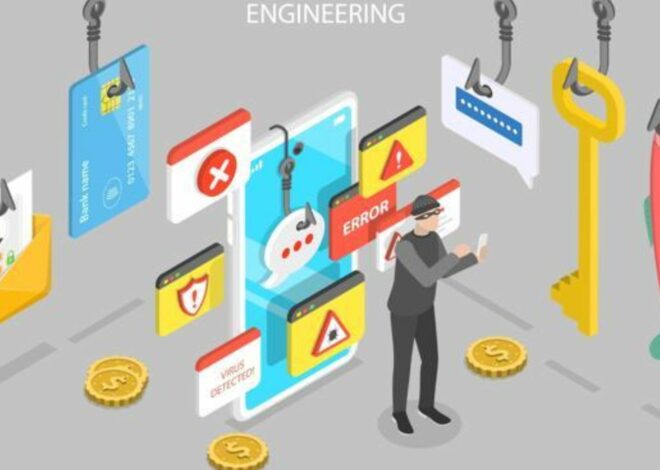
The Role of Governments in Combating Ransomware
In recent years, ransomware has emerged as a significant threat to businesses, organizations, and individuals worldwide. These attacks involve cybercriminals encrypting victims’ data and demanding payment in exchange for the decryption key. The financial impact of ransomware attacks is staggering, with businesses estimated to have paid over $45 billion in ransom in 2021 alone. Combating ransomware requires a multifaceted approach that involves law enforcement, governments, businesses, and individuals. Law enforcement plays a crucial role in investigating ransomware attacks, tracking down cybercriminals, and disrupting their operations. Governments can implement policies and regulations to strengthen cybersecurity measures, promote information sharing, and support international cooperation. Businesses can adopt robust cybersecurity practices, educate employees about ransomware risks, and implement data backup and recovery plans. Individuals can exercise caution when clicking on links or opening attachments from unknown senders and use strong passwords and multi-factor authentication to protect their online accounts.

Law Enforcement’s Role in Combating Ransomware
Law enforcement agencies worldwide are actively pursuing ransomware gangs, utilizing a range of investigative techniques to track down cybercriminals and bring them to justice. These efforts include:
Analyzing ransom payments
Law enforcement agencies can track the flow of ransom payments to cryptocurrency wallets, potentially identifying the perpetrators.
Collaborating with cybersecurity firms
Law enforcement works closely with cybersecurity firms to gain insights into ransomware attacks, obtain decryption tools, and disrupt cybercriminal operations.
Sharing intelligence
International law enforcement agencies share information about ransomware threats, enabling them to identify patterns, track cybercriminals across borders, and coordinate responses.
Raising public awareness
Law enforcement agencies educate the public about ransomware threats, encourage victims to report incidents, and provide guidance on prevention measures.
Government’s Role in Combating Ransomware
Governments play a vital role in creating a regulatory environment that fosters cybersecurity and hinders cybercrime. Key government initiatives include:
Cybersecurity policies
Governments implement cybersecurity policies that mandate specific security measures for businesses and organizations handling sensitive data.
Information-sharing platforms
Governments establish platforms for businesses, organizations, and law enforcement to share threat intelligence and information about ransomware attacks.
International cooperation
Governments collaborate at the international level to develop strategies, share intelligence, and harmonize cybersecurity policies across borders.
Funding and support
Governments provide funding for research and development into cybersecurity technologies and support law enforcement agencies in their efforts to combat ransomware.
Businesses’ Role in Combating Ransomware
Businesses are on the frontlines of ransomware attacks, and their actions can significantly impact the effectiveness of the overall response. Key measures that businesses can take include:
Robust cybersecurity practices
Businesses should implement strong cybersecurity practices, including firewalls, intrusion detection systems, and regular software updates.
Employee education and training
Businesses should educate employees about ransomware risks, phishing scams, and safe online practices to minimize the risk of human error leading to breaches.
Data backup and recovery plans
Businesses should implement regular data backups and have a comprehensive recovery plan in place to restore operations in the event of a ransomware attack.
Incident response plans
Businesses should develop and regularly test incident response plans to ensure a swift and coordinated response to ransomware attacks.
Individual’s Role in Combating Ransomware
Individuals also play a crucial role in protecting themselves and their data from ransomware attacks. Key practices include:
Caution with online behaviour
Exercise caution when clicking on links or opening attachments from unknown senders. Only download files from trusted sources.
Strong passwords and multi-factor authentication
Use strong, unique passwords for all online accounts, and enable multi-factor authentication whenever possible.
Regular software updates
Regularly update operating systems, applications, and software to patch vulnerabilities that could be exploited by cybercriminals.
Back up personal data: Regularly back up personal data to an external hard drive or cloud storage service to prevent data loss.
Report suspicious activity: Report any suspicious activity, such as unusual account activity or demands for ransom payments, to the appropriate authorities.
Conclusion
In Conclusion, combating ransomware requires a collective effort from law enforcement, governments, businesses, and individuals. By working together, implementing effective cybersecurity measures, promoting awareness, and sharing information, we can significantly reduce the impact of ransomware and protect our digital assets from these increasingly sophisticated cyber threats.


